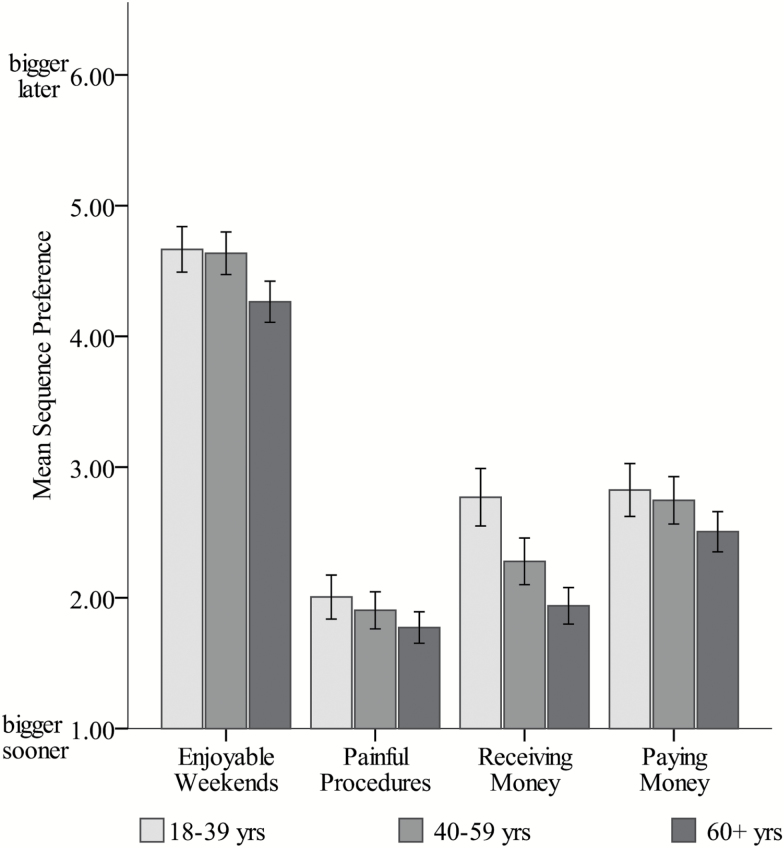Figure 1.
Age differences in sequence preferences in positive and negative hedonic and monetary contexts. Hedonic contexts were enjoyable weekends (positive) and painful procedures (negative). Monetary contexts were receiving money (positive) and paying money (negative). Age is depicted as a categorical variable in the figure, but was a continuous variable in all analyses. Error bars represent 95% confidence intervals of the mean. For all four items, lower ratings indicated a preference for the “biggest” event sooner over later meaning that preferences for improving sequences were shown in lower scores for negative events (painful procedures, paying money) and higher scores for positive events (enjoyable weekends, receiving money). Normatively correct preferences of maximizing current value were shown in lower scores for receiving money and higher scores for paying money.

